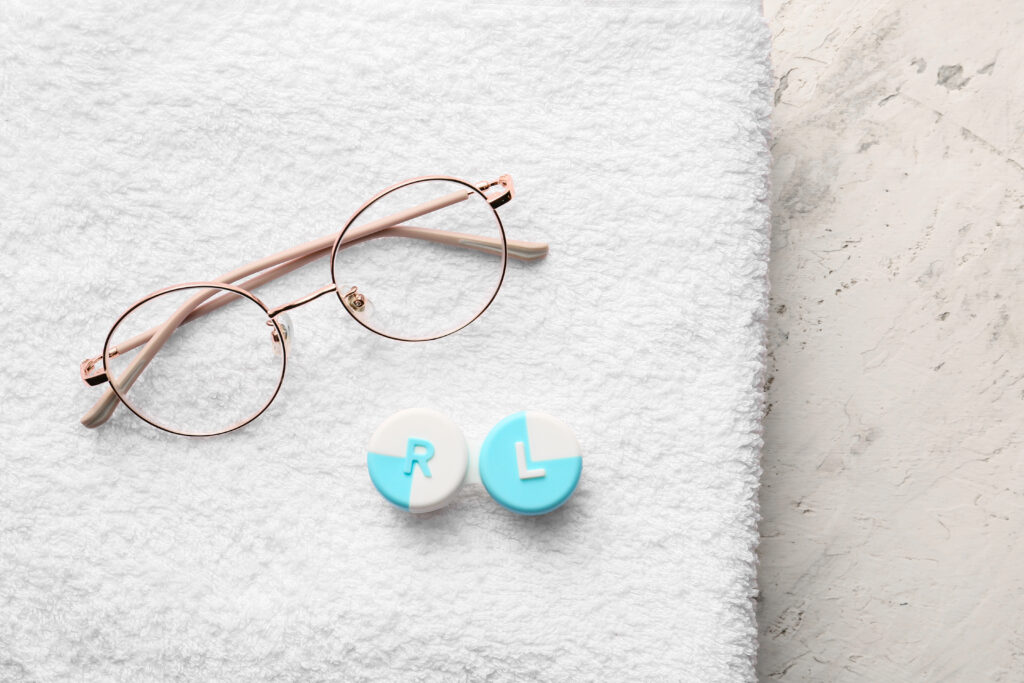When it comes to managing visual impairment, you have two primary options: glasses or contact lenses. Our eye doctors help patients choose the perfect choice for their lifestyle based on their preferences, prescriptions, and budget.
If you’re contemplating glasses vs contact lenses, this post will help you learn the key differences between each and how to choose the right fit for your needs.
Eyeglasses vs Contact Lenses
There are several points to consider when choosing between wearing eyeglasses and getting prescription contact lenses.
Aesthetics
With so many options available, it’s easy to find a style of glasses that suits your unique style and preferences. However, some patients like their natural look and want to wear contact lenses for daily use.
The decision to wear glasses or contacts based on looks alone is a matter of personal preference; you can choose which fits your taste.
Cost
Eyeglasses come in various prices, ranging from less expensive and more budget-friendly, all the way up to designer frames from brand names. One of the biggest expenses when it comes to glasses is the lenses. Those with more severe visual impairments will need more advanced features on their lenses, which increase the cost of glasses.
However, glasses can last for years with proper care. Contact lenses, on the other hand, need to be frequently repurchased and replaced. You will typically have to buy a new box every three to six months, depending on the specific duration of wear for the lenses that you choose.
Effectiveness
There are extreme differences between the design of contact lenses and glasses. While eyeglass lenses rest about 12 millimeters in front of the eye, lenses are layered directly over the eye’s surface.
Both glasses and lenses effectively treat a wide range of conditions, such as myopia (nearsightedness), hyperopia (farsightedness), astigmatism, aniseikonia (different image sizes), and keratoconus (cone-shaped cornea). However, due to the fact that contact lenses rest directly on the eye, they provide more seamless vision correction than eyeglasses.
Practicality
Contact lenses do not fog or slip, so they can be a good option for people who find it difficult to manage wearing glasses in their daily lives. They also offer the most natural vision restoration; they move with your eye, offering the greatest field of vision.
The only potential downside of using contact lenses is the potential for overuse. Wearing contact lenses for long periods can lead to dry eyes and irritation, which are not common problems reported by eyeglass users.
Schedule an Eye Appointment in Villanova, PA
What should you do for your vision? Explore your options with the help of a board-certified eye doctor at Abraham Eye Associates. We offer a wide range of solutions to help you get the perfect fit for your eyes.
Please call (484) 209-0800 or request an appointment online.




